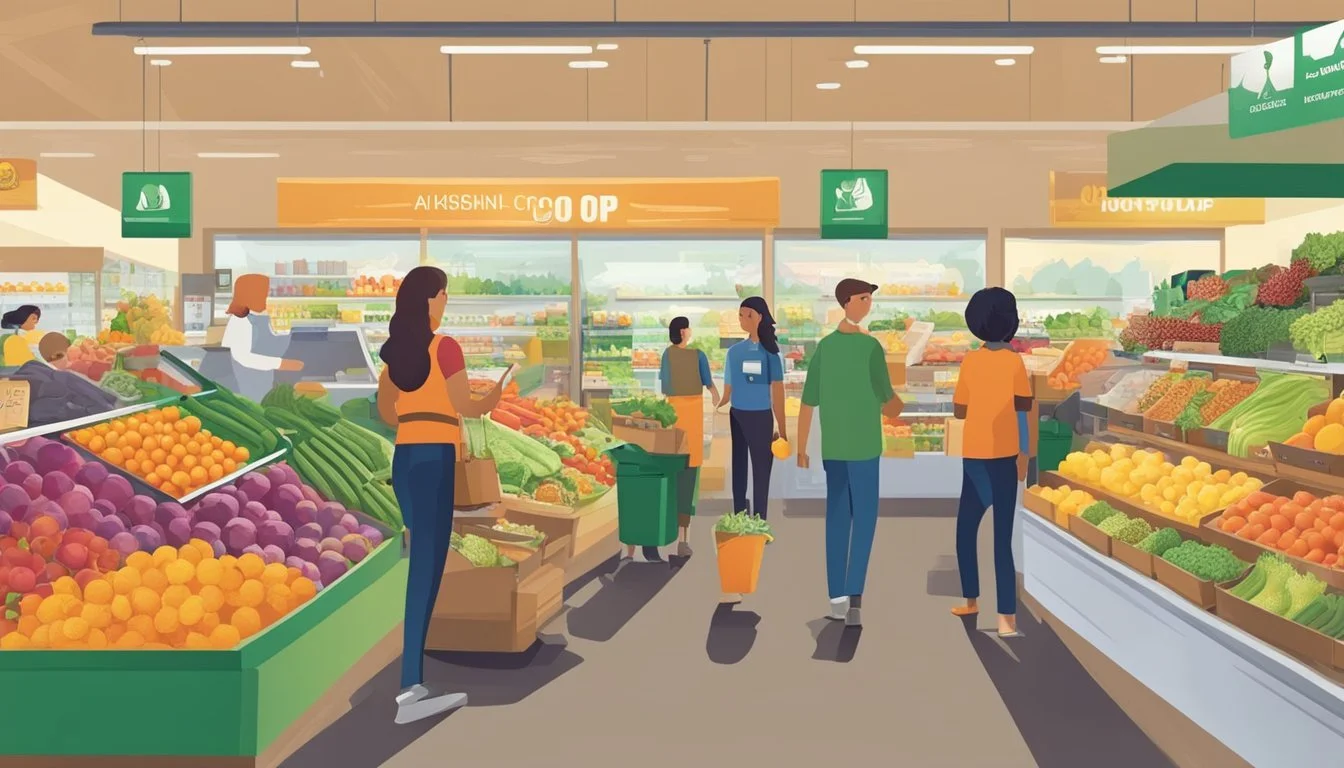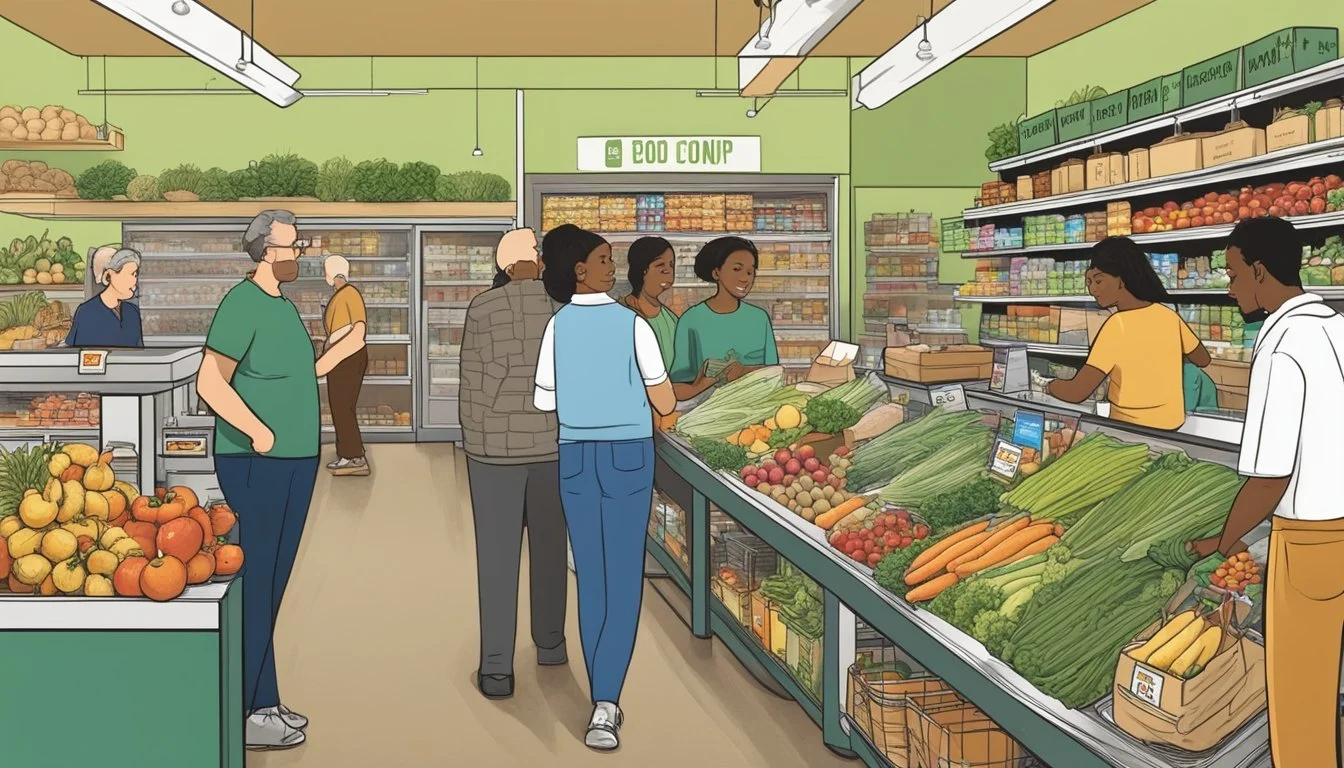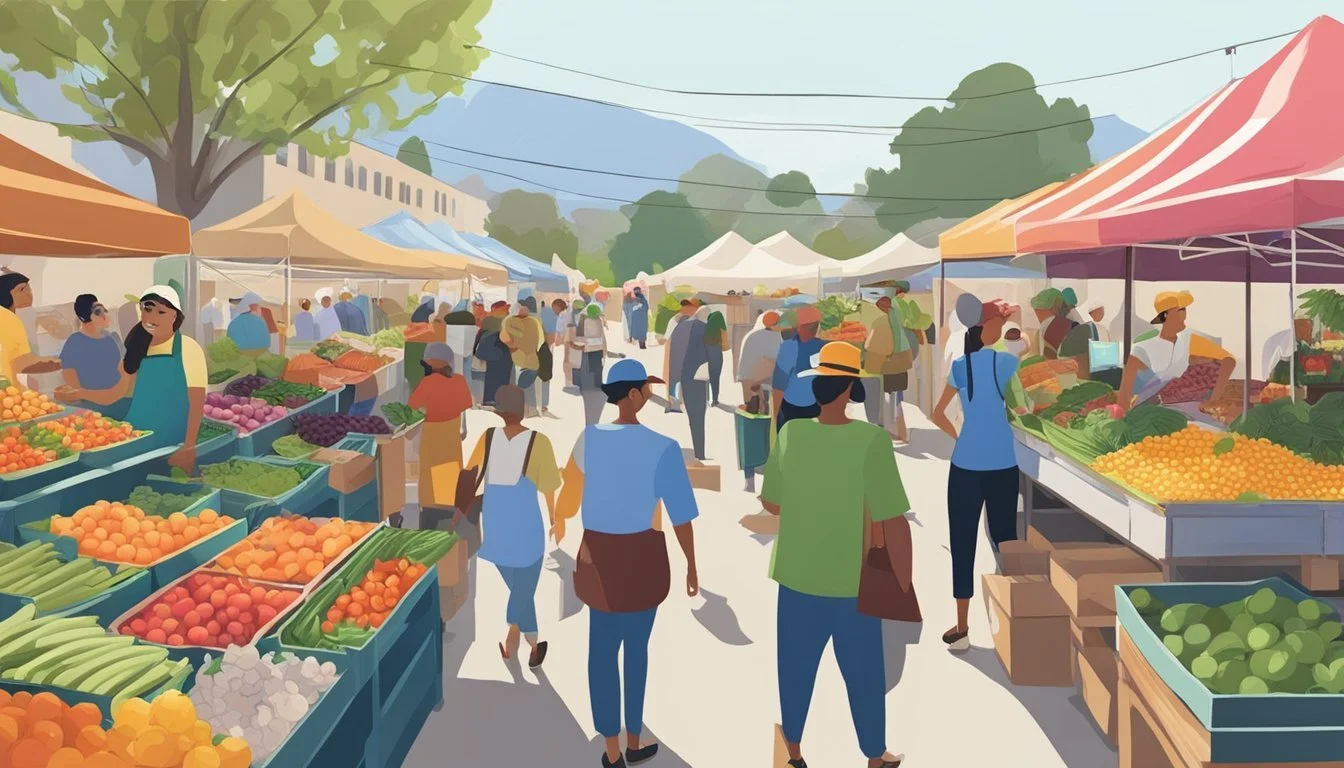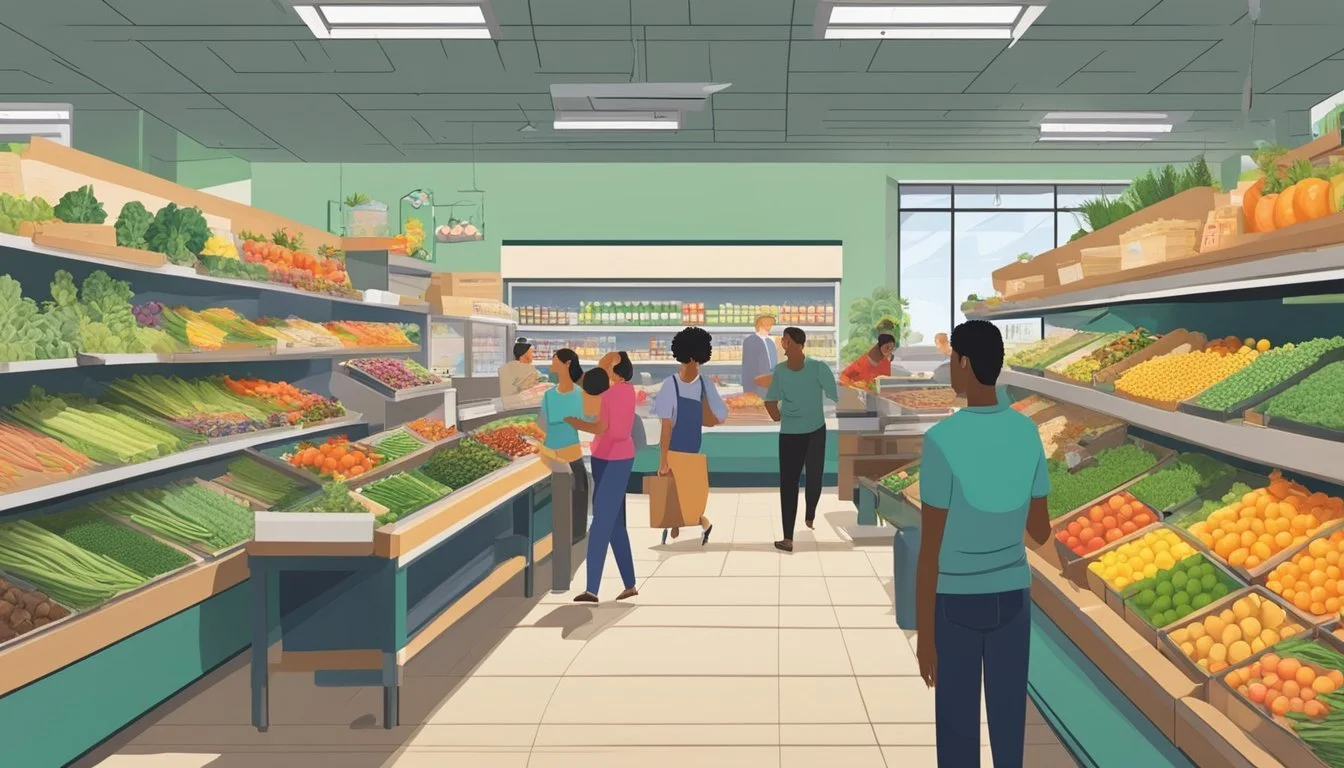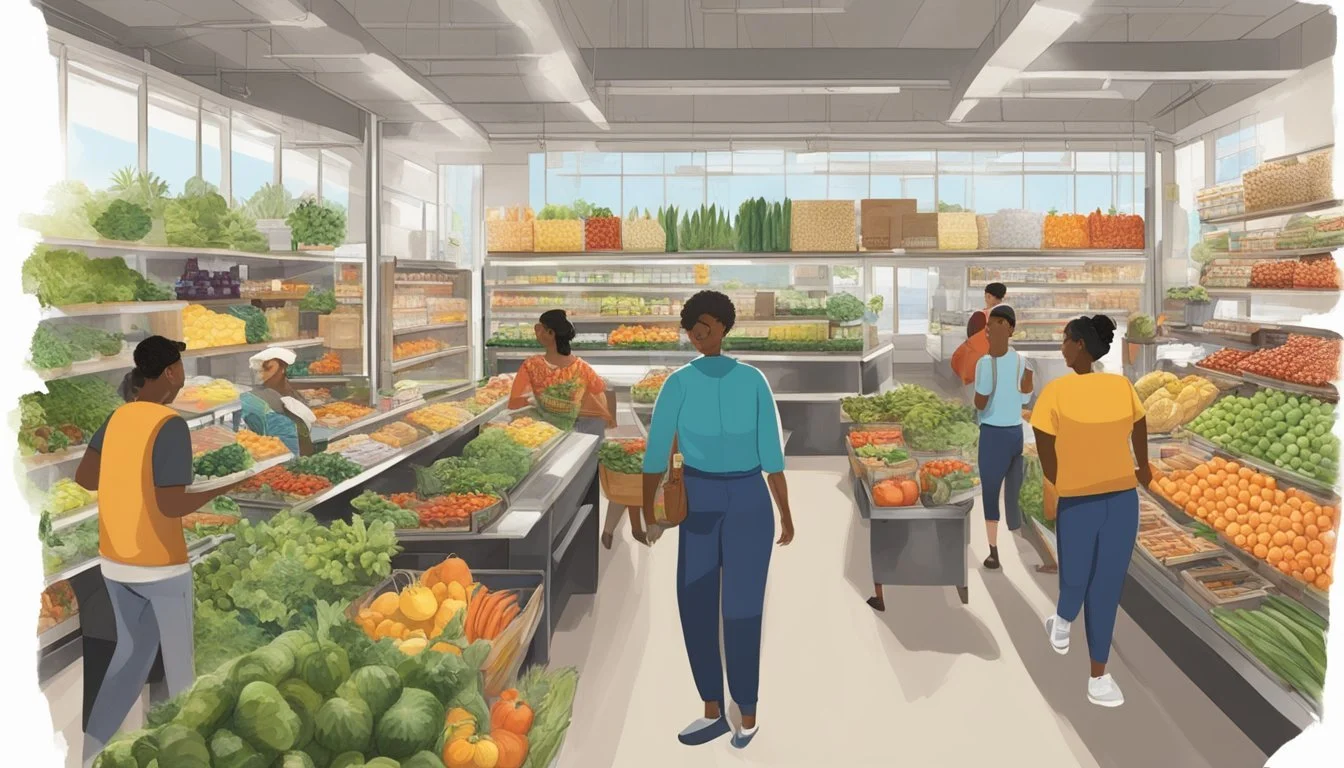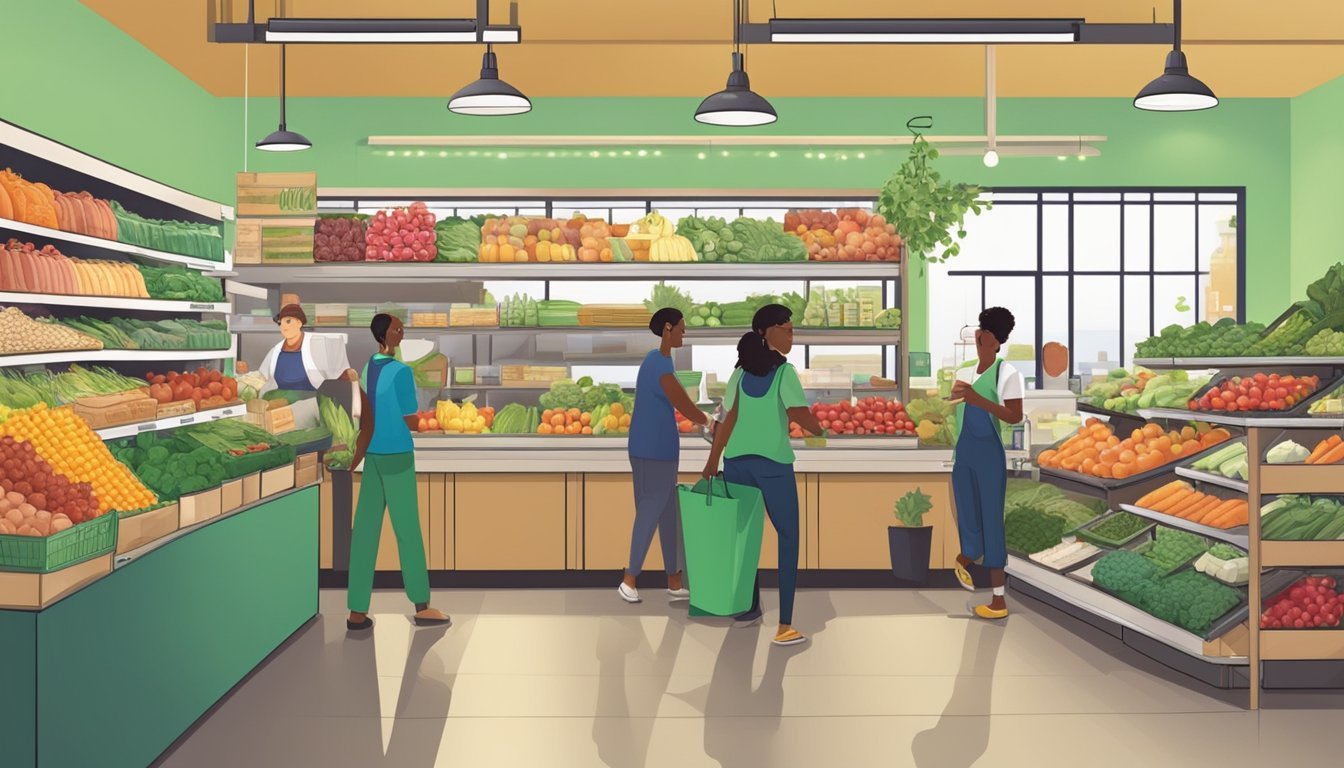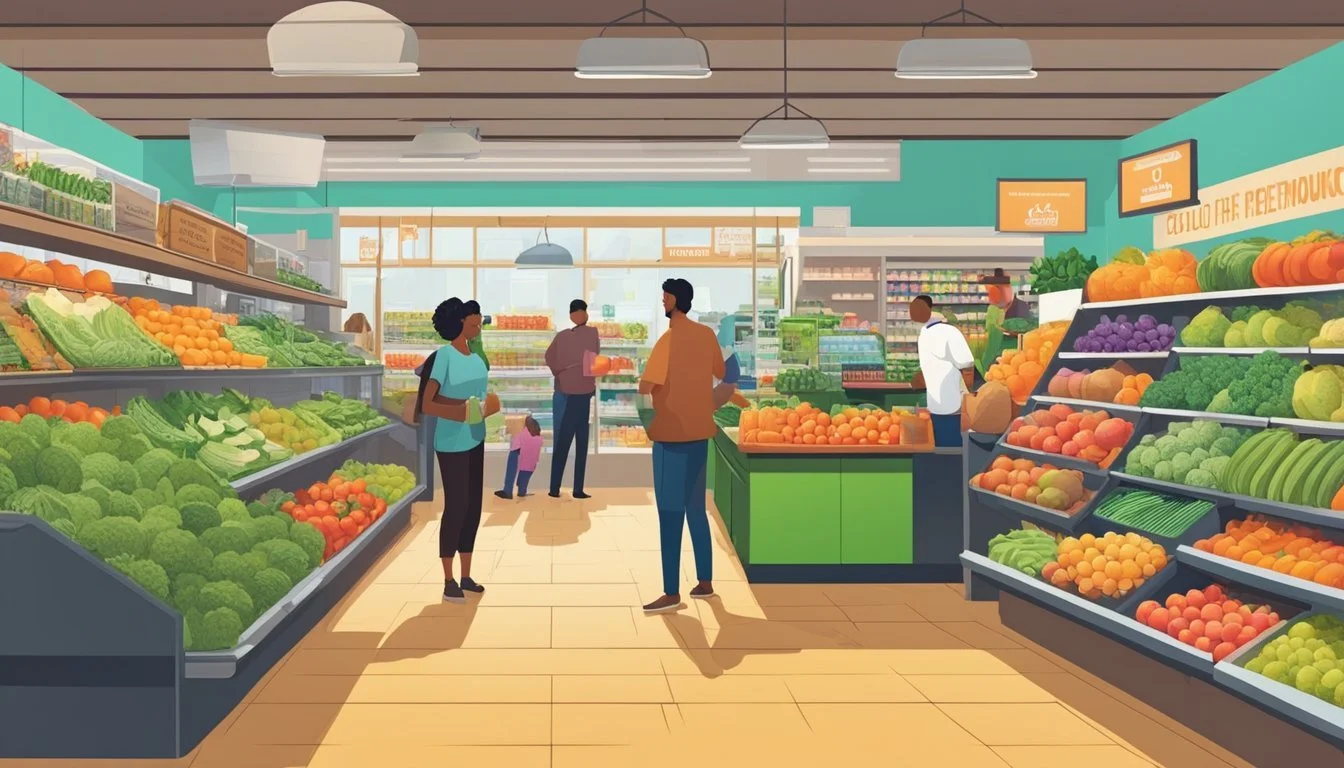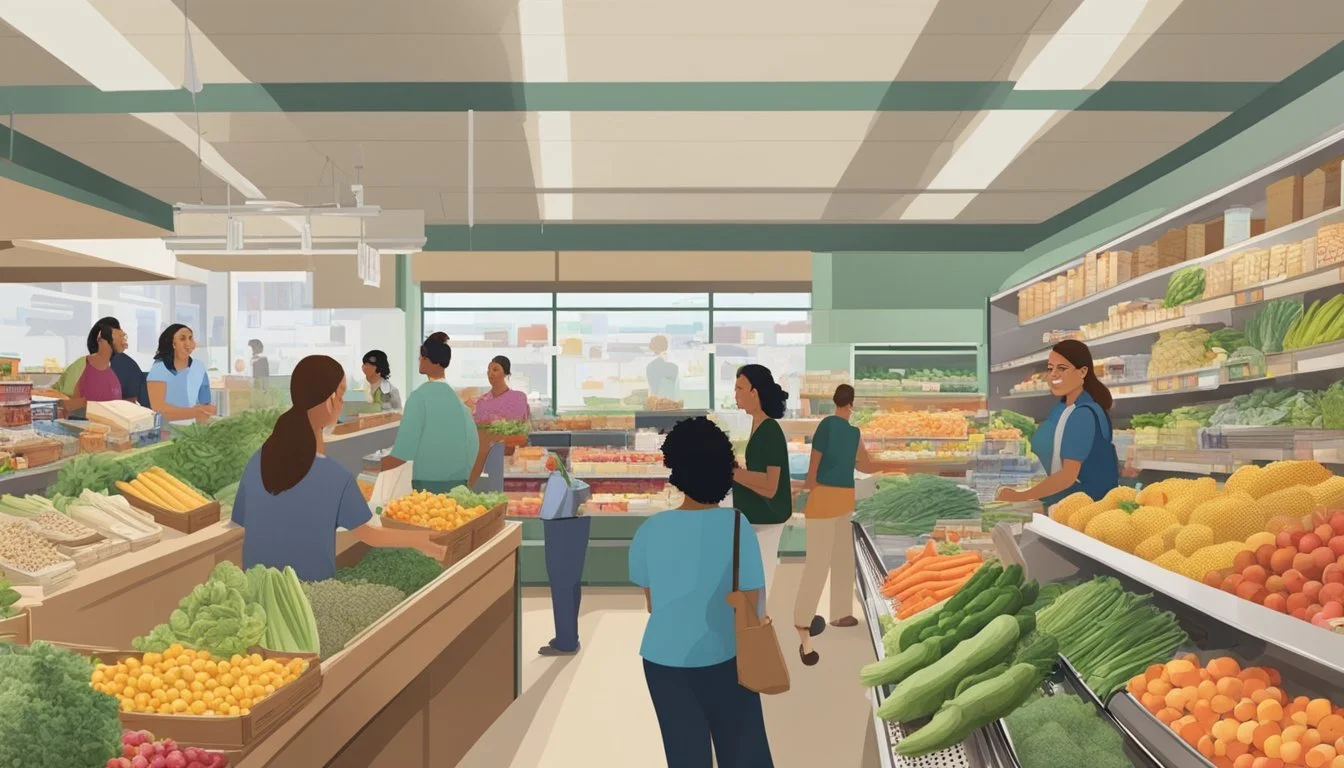Guide to Food Co-Ops in Burbank, CA
Your Essential Resource for Local, Community-Owned Groceries
Food cooperatives, commonly referred to as food co-ops, offer a community-oriented alternative to traditional grocery shopping. In Burbank, CA, residents and visitors have the opportunity to engage with locally-focused food purchasing through these cooperative entities. Unlike conventional supermarkets, a food co-op in Burbank prides itself on providing direct access to fresh, farm-sourced produce and often supports organic and natural food choices. By pooling resources, members of food co-ops can benefit from lower prices and a say in the products stocked, reflecting the needs and preferences of the community.
The offering of food co-ops around Burbank varies, from locations supplying everyday grocery items to specialized outlets offering organic and health-oriented products. Each co-op operates under a model promoting member control, ensuring those who use the co-op have a voice in its operation. This might include sustainability practices, support for local farmers, or educational initiatives about healthy eating habits. The existence of food co-ops in the Burbank area represents a concerted effort toward a more engaged and responsible way of consuming food, with an appreciation for the origins and quality of the products.
Burbank's proximity to California's agricultural hubs allows food co-ops nearby to stock an array of locally grown fruits and vegetables year-round. Whether one is a part of South Central Farmers Cooperative in the Sun Valley area or exploring The Farm Store at Kellogg Ranch in nearby Pomona, which is run by Cal Poly Pomona students, the focus remains on community engagement and access to nutritious food options. These co-ops not only serve as retail spaces but also as hubs for education and connection within the community, embodying the core values of cooperation and shared wellbeing.
Understanding Food Co-Ops
Food cooperatives, or food co-ops, offer a distinct communal approach to buying groceries and engaging with the food system. In contrast to traditional grocery stores, they operate on principles of member ownership and democratic control, providing both social and economic benefits to their communities.
History of Food Cooperatives
Food co-ops emerged from the cooperative movement that began in the 19th century, as a response to the economic needs of its members and the desire for fairness in the marketplace. They have since evolved, with organizations like the Food Co-op Initiative supporting the development of new co-ops, ensuring a more effective and efficient startup process.
Food Co-Ops vs. Traditional Grocery Stores
Ownership: Food co-ops are owned and governed by their members, who elect a board of directors and have a say in decisions.
Product Selection: They often focus on local, organic, and natural foods.
Pricing: Members might receive discounts, as co-ops aim to provide value back to their shoppers and members rather than maximize profits.
The Role of Food Co-Ops in Community Development
Food co-ops contribute significantly to local communities. They typically:
Support local producers and economies, thereby retaining more wealth locally.
Foster community through member engagement and empowerment.
Promote sustainable practices and environmental responsibility within the community.
By understanding the framework and impact of food co-ops, it becomes evident why many consumers in places like Burbank, CA, choose to participate in this alternative grocery model.
The Benefits of Joining a Food Co-Op
Joining a food co-op in Burbank, CA, offers multiple advantages, from economic savings for members to access to healthier food options. These benefits cater to those who prioritize not only their personal well-being but also that of their community.
Membership Advantages
Food co-op members often enjoy exclusive discounts on products, which can lead to significant savings over time. Being part of a co-op means that they are member-owners, allowing them a say in business decisions and practices that directly affect their shopping experience. This democratic approach empowers members to influence the selection and quality of goods offered.
Financial and Economic Benefits
Members of a food co-op can expect financial perks, including a share of the profits through dividends or reduced prices. Co-ops operate on a not-for-profit basis, with any profits often reinvested into the co-op or returned to members. They also contribute to the local economy by supporting local producers and keeping more money circulating within the community.
Health and Nutritional Value
Food co-ops typically prioritize offering a range of healthy food options, including organic and locally sourced produce. Members benefit from access to fresh, high-quality foods that support a nutritious diet. This is particularly valuable for individuals with dietary restrictions or preferences, such as gluten-free or paleo diets, as co-ops often cater to these needs.
Local Food Systems and Agriculture
In Burbank, CA, the local food systems play a pivotal role in connecting consumers with local farmers and fresh, locally grown produce. These systems encompass various initiatives, including farmers' markets, community-supported agriculture (CSA), and educational programs, which collectively strengthen community bonds and sustain the local agricultural economy.
Supporting Local Farmers
Local farmers in the Burbank area gain significant support through direct sales at farmers' markets and partnerships with food co-ops. These channels not only provide farmers with a fairer share of the revenue but also allow them to engage directly with the community. The South Central Farmers' Cooperative in Sun Valley, for example, is an initiative where consumers can participate in their Community Supported Agriculture Program, ensuring consistent support for local farmers.
Access to Locally Grown Produce
Residents of Burbank have access to an array of locally grown produce through venues such as The Farm Store at Kellogg Ranch, managed by Cal Poly Pomona students. These outlets offer a range of fresh and often organic produce that is sourced from local fields, contributing to a robust local food system that prioritizes sustainability and the reduction of carbon footprints associated with long-distance transportation.
Agricultural Education and Support
Educational frameworks are integral to a thriving agricultural community. Programs through local institutions often emphasize hands-on learning and skill development in sustainable farming practices. For example, Cal Poly Pomona's program not only provides education but also allows students to manage the Farm Store, integrating vital business and agricultural skills. These educational opportunities ensure ongoing support for the future of agriculture in the region.
Operations and Management of Food Co-Ops
Effective operations and management are the backbone of food co-operatives in Burbank, CA, ensuring that these entities not only sustain retail services but also adhere to the cooperative principles of member-ownership and democratic decision-making.
Business Model and Ownership Structure
Food co-operatives operate on a business model that is member-owned and guided by a board of directors elected from among the membership. The ownership structure is typically democratic—one member, one vote—allowing consumers to have a direct say in how the business is run. The model places emphasis on serving the interests of its membership rather than maximizing profits for external shareholders. This has a significant impact on local economies as profits are often reinvested into the co-operative or the local community.
Worker Cooperative and Decision Making
In some food co-ops, the workers themselves own the business, either wholly or partially. This worker cooperative model means that the co-op’s employees are also its members, with the opportunity to share in the profits and contribute to decision-making processes. The decision-making in such a setup is usually participatory and collaborative, with individuals having equal say on matters that affect the business and their work, strengthening the co-operative ethos and fostering a vested interest in the co-op’s success.
Financial Management and Growth Strategies
A food co-op's financial management is key to its sustainability and growth. Detailing clear strategies for handling cash flow, allocating capital, and managing expenses is crucial. Co-ops often raise capital through member shares, loans, and community support. Growth strategies may include the expansion of services and retail space, increased diversity in product offerings, and strategic partnerships with local producers. The balance between maintaining adequate revenue and adhering to co-op principles of affordability and accessibility is delicate and requires astute financial planning. Profits are typically reinvested into the co-op to fund improvements and ensure ongoing viability.
Challenges Facing Food Co-Ops
Food cooperatives in Burbank, CA, are battling distinctive issues within the grocery industry, ranging from competitive market pressures to socioeconomic factors affecting food access.
Dealing with Competition
Food co-ops are finding it increasingly challenging to sustain their presence in a market dominated by larger supermarkets and online grocery delivery services. These entities leverage economies of scale to offer lower prices and a wider variety of products. Burbank food co-ops must differentiate themselves by fostering a sense of community and offering unique, local products that are not available at big box stores or through e-commerce platforms.
Addressing Food Insecurity and Access
Amidst affluence, hunger and poverty persist in pockets of Burbank. Food co-ops aim to address food insecurity by providing access to healthy, affordable food. They are often involved in community outreach programs to ensure that food security does not become subservient to market forces. They must balance the need to be financially viable while striving to fulfill their mission of serving all community members, including those facing economic hardships.
Navigating Regulatory and Economic Hurdles
Food co-ops in Burbank must navigate a complex array of local and federal regulations that govern food safety, labeling, and operations. Economic hurdles, such as rising costs and maintaining financial solvency while keeping prices affordable, present ongoing challenges. The food co-ops’ commitment to their members and social missions frequently requires creative management strategies and constant adaptation to regulatory changes.
How to Engage with and Support Food Co-Ops
Burbank residents have several ways to engage with and support their local food co-op, which focuses on community development and education. They can become integral to the co-op by assuming member-ownership, participating in educational initiatives, or advocating for the cooperative economy.
Becoming a Member or a Volunteer
Food co-ops in Burbank are member-owned entities, meaning they rely on local individuals who not only shop there but also help steer the organization. Interested individuals can:
Become a Member: By purchasing a share, one becomes a part-owner of the co-op, entitled to benefits like voting rights and potential dividends.
Volunteer: Opportunities often include assisting with events, helping in store operations, or providing skills-based services such as accounting or marketing.
Educational Programs and Community Involvement
Education is a cornerstone of food co-ops, advancing both individual skills and community knowledge.
Workshops and Classes: Co-ops may offer cooking classes, nutrition workshops, and other educational programs to improve food literacy.
Community Events: Co-ops can act as hubs for community events, fostering connections and sharing co-op principles.
Advocacy and the Cooperative Economy
Supporters of food co-ops play a role in the larger cooperative economy by advocating for systems that prioritize community wellbeing over profit.
Policy Engagement: Members can participate in local advocacy efforts that support co-op friendly legislation.
Promoting the Co-op Model: By spreading awareness of the benefits of co-ops, individuals help strengthen the fabric of the cooperative economy.
Food Co-Ops in Burbank, CA
Residents of Burbank have several options for joining food co-ops, which aim to provide organic, locally grown produce and support sustainable agriculture within California.
Directory of Local Food Co-Ops
Burbank is served by several food co-ops and community-supported agriculture programs. Some notable operations offering fresh, organic produce to the community include:
Bringx: Located in nearby Santa Ana, CA, Bringx offers a farm-fresh delivery service getting organic food right to the doors of Burbank residents. The service emphasizes California-grown produce and works closely with local farmers.
Sprouts Farmers Market: Although not a traditional co-op, Sprouts in Burbank provides a range of organic and natural foods, with a particular focus on health and personal care products. They offer services such as delivery and curbside pickup.
South Central Farmers Cooperative: Based in Sun Valley, this cooperative emphasizes organic leafy greens and other fresh produce, with a dedication to supporting local agriculture.
Spotlight on Burbank Community Co-Ops
Burbank community co-ops thrive on the principle of consumer education and member control. Rooted in the cooperative spirit, these entities are either owned by workers or customers and prioritize providing high-quality groceries that are the best value for their members. In addition to retail services, these cooperatives are keen on contributing to the local community by promoting local producers and sustainable practices.
Future of Food Co-Ops
The landscape of food co-ops is set to meet consumer demand for more sustainable practices and local sourcing, while embracing innovative business models in the cooperative retail sector. They are becoming pivotal in reshaping food distribution networks and enhancing community-focused environmental efforts.
Innovations in Cooperative Retail
Innovations in the retail aspect of food co-ops are primarily driven by advancements in technology and member-driven services. Burbank's food co-ops might integrate online platforms where members can place orders, boosting accessibility and convenience. They are also likely to adopt inventory management systems that enhance efficiency, minimize waste, and correspond to local consumer needs.
Sustainability and Environmental Impact
Food co-ops have traditionally led the way in sustainability efforts:
Local Sourcing: They prioritize local farmers and producers, reducing carbon emissions from long-distance transportation.
Food Pantries Collaboration: Excess food may be directed to local food pantries, supporting community members in need and reducing food waste.
Energy Conservation: Future developments will likely focus on utilizing renewable energy sources for operations, further diminishing environmental impact.
The Evolving Landscape of Food Distribution
As for distribution, food co-ops are reimaging their role in the food supply chain. They aim to strengthen the bond between local producers and consumers, creating a more direct, transparent, and resilient food distribution network. Due to this evolution, these co-ops are expected to become crucial nodes in Burbank's food distribution, ensuring stability even during economic or environmental adversities.
Conclusion
Food co-ops in Burbank, CA, offer community members a unique shopping experience with a focus on locally sourced and often organic products. They represent not just a place to purchase groceries but a means to participate directly in a system that values sustainability and local economies.
Benefits of Food Co-ops
Local Impact: By supporting these cooperatives, shoppers contribute to the growth of local farms and businesses.
Freshness and Quality: The produce and products tend to be fresher, with the Farm Store at Kellogg Ranch in nearby Pomona a notable example of student-cultivated goods.
Education: Co-ops often provide educational opportunities about healthy eating and sustainable living.
Challenges to Consider
Accessibility: Some residents may face challenges regarding location and transportation to the co-ops.
Cost: Prices at co-ops might be higher compared to conventional supermarkets due to the quality and sourcing of the products.
Food cooperatives in Burbank are buoyed by a rich Californian tradition of community and collaboration. Resources like the California Center for Cooperative Development (CCCD) provide invaluable guidance for those looking to start or join a co-op, underscoring the communal spirit that drives the success of these ventures.
Whether one is seeking fresh, high-quality produce, aiming to support local agriculture, or looking to be part of a community-oriented shopping experience, the food co-ops of Burbank emerge as a prime choice. Their continued operation and growth reflect their importance to the residents of Burbank and their commitment to a cooperative way of life.

